Meet the Authors
Dr. Holly Bates
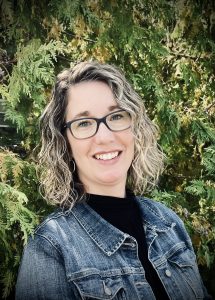 Holly is an educator and researcher in Biology at Trent University. She did her postdoctoral training at Mount Sinai Hospital, Toronto in the lab of Dr. Dan Drucker working towards understanding the physiology of the hormones that paved the way for popular diabetes/weight loss drugs such as Ozempic and Wegovy. She did her PhD in Physiology at the University of Toronto with Order of Canada recipient Dr. Mladen Vranic studying the interactions between stress and development of diabetes and obesity. Holly’s research programs now focus on metabolic physiology and science pedagogy.
Holly is an educator and researcher in Biology at Trent University. She did her postdoctoral training at Mount Sinai Hospital, Toronto in the lab of Dr. Dan Drucker working towards understanding the physiology of the hormones that paved the way for popular diabetes/weight loss drugs such as Ozempic and Wegovy. She did her PhD in Physiology at the University of Toronto with Order of Canada recipient Dr. Mladen Vranic studying the interactions between stress and development of diabetes and obesity. Holly’s research programs now focus on metabolic physiology and science pedagogy.
She has been nominated for numerous teaching awards and was a recipient of a Teaching Fellowship (2020+) and Wickerson Research Award (2023-24) from the Trent Centre for Teaching and Learning. As an educator and SOTL researcher, Holly works to remove barriers to learning and nurture the skills necessary for students to identify as scientists and appreciate evidence-based decision making. She actively promotes authentic opportunities for scientific experimentation and critical thinking in her pedagogy and strives to instill an enthusiasm for learning in her students.
To learn more about Holly Bates’ work, view the section on “Mind Matters Mini-Sessions in a First-Year Science Course.”
Dr. Brent Ryan Bellamy
Audio Version
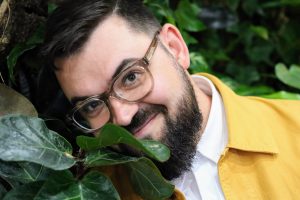 Brent Ryan Bellamy teaches worldbuilding, environmental communication, and science fiction courses at Trent University and Ontario Tech University.
Brent Ryan Bellamy teaches worldbuilding, environmental communication, and science fiction courses at Trent University and Ontario Tech University.
You can follow his work at his professional website link brentryanbellamy.com and read about his latest project with this substack link.
To learn more about Brent Bellamy’s work, view the section “Designing and Implementing Oral Assignments.”
Dr. Ann Celestini
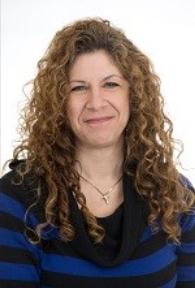 Dr. Ann Celestini has over 30 years of experience as a registered nurse in various clinical, administrative, and educational roles. Since starting as faculty in 2013, her responsibilities have included teaching in a variety of nursing theory and clinical courses, in all four years of the BScN program. Beyond these responsibilities, she has co-supervised students in completing their fourth-year undergraduate thesis.
Dr. Ann Celestini has over 30 years of experience as a registered nurse in various clinical, administrative, and educational roles. Since starting as faculty in 2013, her responsibilities have included teaching in a variety of nursing theory and clinical courses, in all four years of the BScN program. Beyond these responsibilities, she has co-supervised students in completing their fourth-year undergraduate thesis.
In 2018, Ann co-developed the first graduate-level nursing diploma program in mental health and addiction for the TFSON, which is still being offered to date. In 2020, she was approached by the Canadian Association of Schools for Nursing to develop and teach a course about inclusive Universal Design for Learning (UDL) theoretical principles in higher education for nurse educators in 2021 and 2022, as part of the Continuing Nursing Education Initiative at the Canadian Association of Schools of Nursing.
In 2022, she completed her dissertation research related to UDL in post-secondary education. As the recipient of two Wickerson internal grants, Dr. Celestini recently completed a third mixed methods case study of a first-year nursing course to describe any connection of UDL based- instructional strategies to trauma informed care pedagogy.
To learn more about Ann Celestini’s work, view the sections “Universal Design for Learning in a First-Year Nursing Course” and “UDL and an Unfolding Case Study in a First-Year Nursing Course.”
Dr. Amy Hallaran
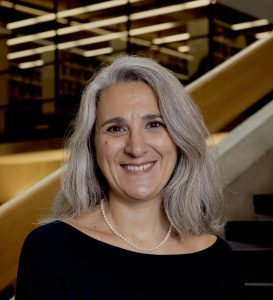 Dr. Amy Hallaran is a Registered Nurse with over 20 years of nursing experience. Dr. Hallaran’s professional experience has included direct practice experience in hospitals (tertiary centres to smaller community hospitals), nursing regulation, and leadership roles in acute care and home and community care. Currently, Dr. Hallaran is the Associate Dean of the Rankin School of Nursing at St. Francis Xavier University.
Dr. Amy Hallaran is a Registered Nurse with over 20 years of nursing experience. Dr. Hallaran’s professional experience has included direct practice experience in hospitals (tertiary centres to smaller community hospitals), nursing regulation, and leadership roles in acute care and home and community care. Currently, Dr. Hallaran is the Associate Dean of the Rankin School of Nursing at St. Francis Xavier University.
Prior to this role, Dr. Hallaran was a professor in the Trent Fleming School of Nursing teaching courses across the curriculum in addition to supporting clinical courses, and student research in undergraduate and graduate studies. Dr. Hallaran’s areas of research include transition to practice, workplace and practice readiness, retention in the workplace, and chronic illness.
To learn more about Amy Hallaran’s work, view the section “UDL and an Unfolding Case Study in a First-Year Nursing Course.”
Dr. David Newhouse
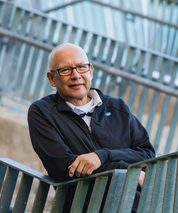 David Newhouse is Onondaga from the Six Nations of the Grand River community near Brantford, Ontario. He is a Professor of Indigenous Studies at Trent University in the Chanie Wenjack School for Indigenous Studies and a Professor of Business Administration at the School of Business Administration. He served as Chair of the Department of Indigenous Studies, now the Chanie Wenjack School for Indigenous Studies, from 1995 to 2023. His research interests focus on the emergence of modern Indigenous society.
David Newhouse is Onondaga from the Six Nations of the Grand River community near Brantford, Ontario. He is a Professor of Indigenous Studies at Trent University in the Chanie Wenjack School for Indigenous Studies and a Professor of Business Administration at the School of Business Administration. He served as Chair of the Department of Indigenous Studies, now the Chanie Wenjack School for Indigenous Studies, from 1995 to 2023. His research interests focus on the emergence of modern Indigenous society.
He is the founding editor of two peer-reviewed journals: the CANDO Journal of Aboriginal Economic Development and Aboriginal Policy Studies, a journal devoted to urban Indigenous issues. He is also the editor of seven books on Indigenous issues and the author of 25 book chapters, 50 journal articles, and more than 150 keynote invited talks.
In 2024, he received the Lee Lorch Award for excellence in research, teaching and service from the Canadian Association of University Teachers. He received the Jackie Muldoon Award for Faculty Service in 2023, a 3M National Teaching Fellowship for teaching innovation in 2022, and the Trent University Award for Educational Leadership and Innovation in 2016. He is the Chair of the Aboriginal Peoples Post-Secondary Working Group at CAUT and the Grievance Officer for the Trent University Faculty Association.
To learn more about David Newhouse’s work, view the section “Engaging UDL in a First-Year Indigenous Studies Course.”
Dr. Robin Quantick
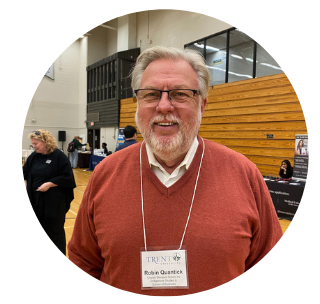 Robin teaches in the Chanie Wenjack School for Indigenous Studies and the Trent School of Business. Before returning to graduate school, he spent 27 years running a company that provided teachers to the Correctional Service of Canada in Atlantic, Ontario and Prairie Regions. In this work, he was involved in recruiting, training and placing correctional educators (teachers) working with incarcerated adults.
Robin teaches in the Chanie Wenjack School for Indigenous Studies and the Trent School of Business. Before returning to graduate school, he spent 27 years running a company that provided teachers to the Correctional Service of Canada in Atlantic, Ontario and Prairie Regions. In this work, he was involved in recruiting, training and placing correctional educators (teachers) working with incarcerated adults.
In the last decade his work has focused on the development and delivery of Indigenous content requirement courses to first year students. In this context his current teaching and research is centred on decolonization, and specifically, on Indigenizing curriculum and finding new ways to bring Indigenous Knowledge and Universal Design for Learning to the study of management and leadership at the School of Business.
To learn more about Robin Quantick’s work, view the section on “Engaging UDL in a First-Year Indigenous Studies Course.”
Dr. Amy Shawanda
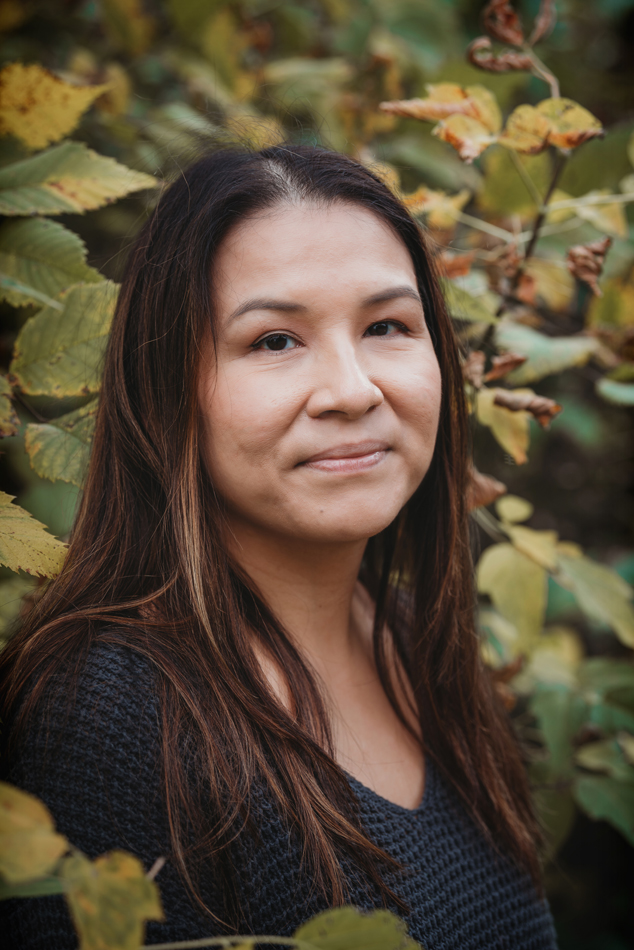 Amy Shawanda, PhD is an Odawa Kwe from Wikwemikong Unceded Territory, Manitoulin Island. Dr. Shawanda is an Assistant Professor in Indigenous Health at McGill University’s Department of Family Medicine.
Amy Shawanda, PhD is an Odawa Kwe from Wikwemikong Unceded Territory, Manitoulin Island. Dr. Shawanda is an Assistant Professor in Indigenous Health at McGill University’s Department of Family Medicine.
Dr. Shawanda’s primary research interest is in Indigenous health equity, traditional health & wellbeing, and Indigenous methodologies. She is community-driven, generationally inspired, and social-justice oriented.
To learn more about Amy Shawanda’s work, view the section “Integrating UDL into Indigenous Pedagogy in a First-Year Science Course.”
Dr. Barbara Moktthewenkwe Wall
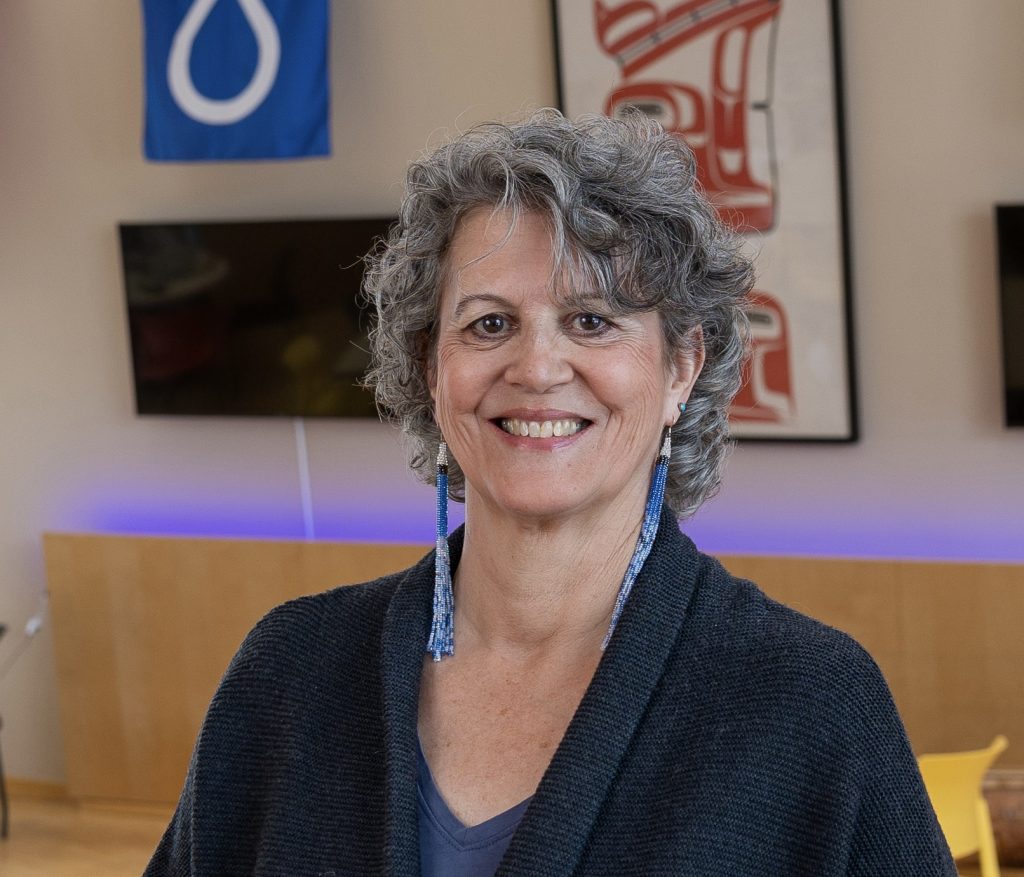 Dr. Barbara Moktthewenkwe Wall is an associate professor in Trent University’s Chanie Wenjack School for Indigenous Studies and the Director of Studies for the Indigenous Studies PhD program. Wall’s research is primarily based in the Indigenous Environmental Institute at Trent University and focuses on the Great Lakes Basin and the collaboration of Indigenous knowledge systems and euro-centric scientific knowledge systems.
Dr. Barbara Moktthewenkwe Wall is an associate professor in Trent University’s Chanie Wenjack School for Indigenous Studies and the Director of Studies for the Indigenous Studies PhD program. Wall’s research is primarily based in the Indigenous Environmental Institute at Trent University and focuses on the Great Lakes Basin and the collaboration of Indigenous knowledge systems and euro-centric scientific knowledge systems.
She teaches within the Indigenous Environmental Studies and Sciences Program, teaching Foundations in Indigenous Environmental Studies and Sciences; Water, Indigenous Knowledges and the Great lakes; and Foodways of Great Lakes Basin Indigenous Peoples I and II.
Wall holds a PhD in Indigenous Studies from Trent University, a MSc in Civil Engineering from University of California Berkeley, and a BSc in Geological Engineering from Michigan Technological University.
To learn more about Barbara Wall’s work, view the section “Integrating UDL into Indigenous Pedagogy in a First-Year Science Course.”
Dr. Sarah West
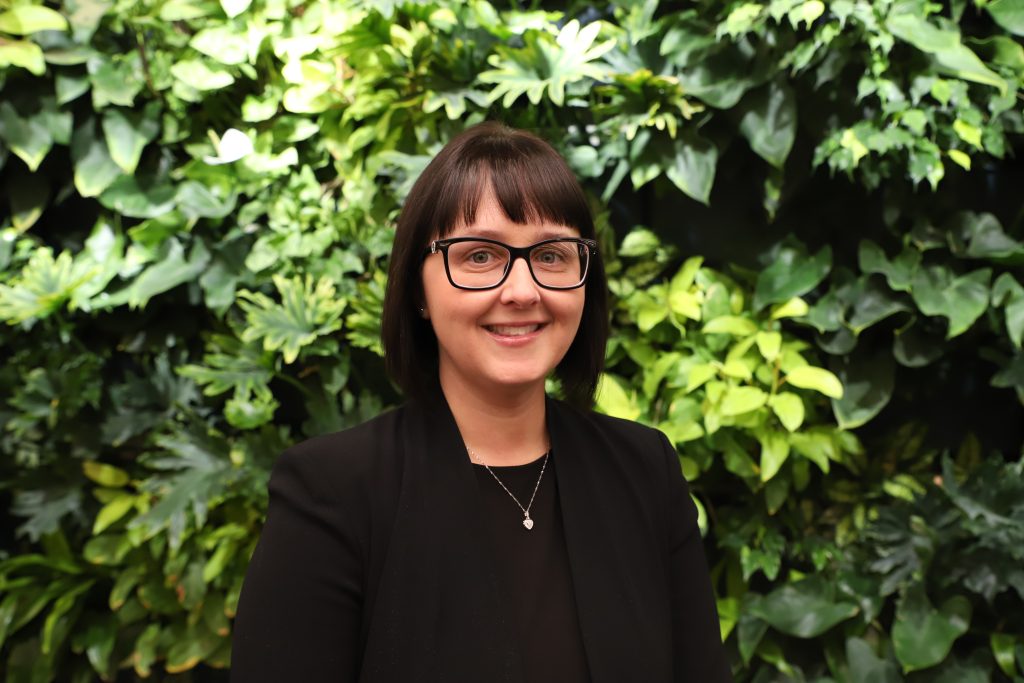 Dr. Sarah West is the Dean of Science at Trent and is an associate professor in the Kinesiology and Biology departments. Since beginning at Trent University, Dr. West has contributed her knowledge and expertise to deliver advanced education, exceptional service, and meaningful research. Sarah led the Kinesiology program as Program Coordinator for two years and was instrumental in Trent’s launch of a four-year Kinesiology degree.
Dr. Sarah West is the Dean of Science at Trent and is an associate professor in the Kinesiology and Biology departments. Since beginning at Trent University, Dr. West has contributed her knowledge and expertise to deliver advanced education, exceptional service, and meaningful research. Sarah led the Kinesiology program as Program Coordinator for two years and was instrumental in Trent’s launch of a four-year Kinesiology degree.
Dr. West is also passionate about advancing the Scholarship of Teaching and Learning. She was funded by Ontario’s Virtual Learning Strategy in 2022 to lead a project in developing a virtual physical activity and Indigenous health resource created by Indigenous experts and scholars. She was also a Teaching Fellow with the Centre for Teaching and Learning and is conducting research related to student wellness and academic success.
To learn more about Sarah West’s work, view the section “Mind Matters Mini-Sessions in a First-Year Science Course.”

